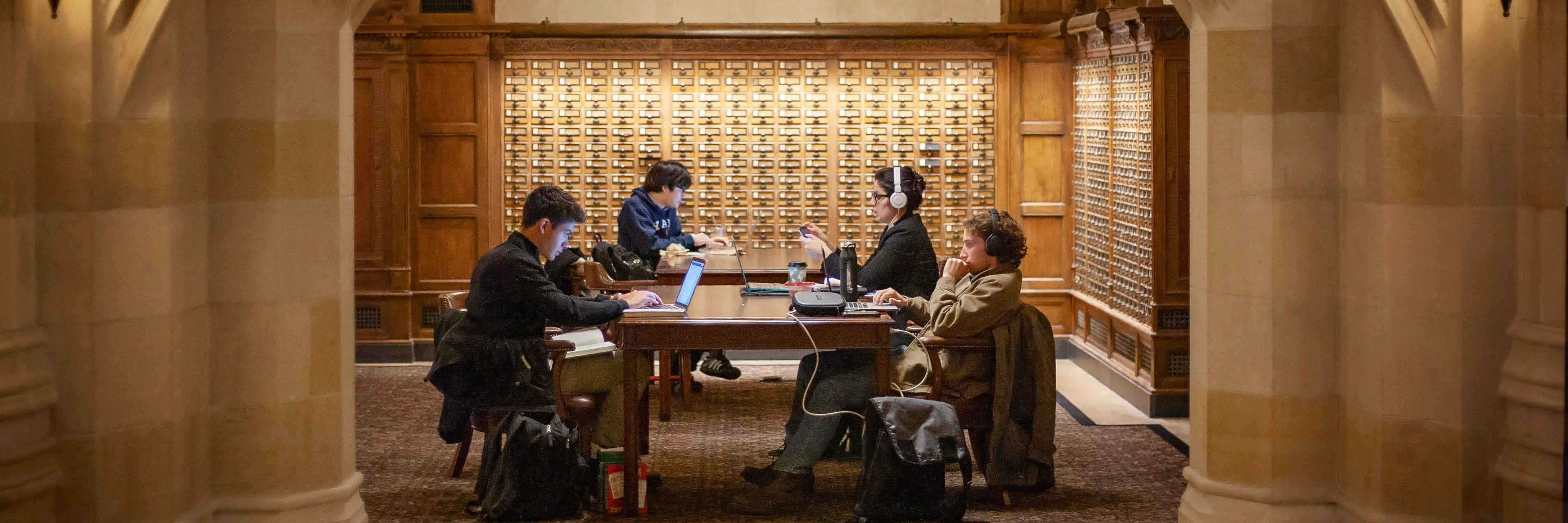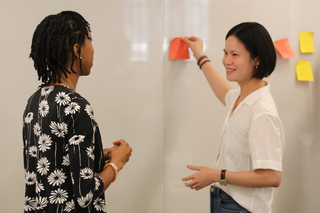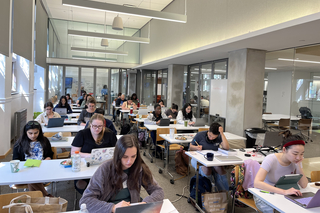Publishing your research is the time-honored way to share your findings, build your academic reputation, and open doors to future opportunities. However, it involves more than just writing: you need to organize your paper around a compelling research question, engage with existing scholarship, understand and follow your field’s writing conventions, and convince editors and reviewers of your work’s value. Our experienced Graduate Writing Lab Fellows can help you strengthen the ideas in your paper, hone your writing for clarity and impact, and find a writing process that works for you.
Get Feedback on Your Research Paper
Schedule a 1–1 consultation to get feedback at any stage, from brainstorming, to drafting, to polishing the final submission.
Preparing to Write
Spending time before you start writing to (a) organize your ideas and findings and (b) understand the conventions of a research paper in your field will make the writing process smoother and your final product stronger. The guides linked below can help you being to navigate this process. And you can gain additional support in our workshops and one-on-one consultations.
-
From Note-Taking to Outlining
Beginning the Writing Process in Humanities Research Papers
-
Writing a Paper Outline
A Guide and Template for Scientists
-
Elements of the Academic Paper
Breaking Down What Goes Into a Graduate-Level Paper in Any Discipline
Writing a Journal Article
In addition to writing consultations, the GWL hosts division-specific workshops on research paper writing all designed to help you compose and market your paper effectively. Our colleagues in the Yale Library can help you identify an appropriate target journal and navigate the procedural aspects of publishing, like copyright and open access options.
-
How to Write Your First Research Paper
A Guide for Scientists
-
Choosing a Venue for Your Article
A Guide for Humanities Researchers
Turning Your Dissertation into a Book
After graduate school, scholars in many humanities fields turn their dissertations into books to make their ideas accessible to a wider audience and to advance their academic careers. At our annual “Dissertation to Book” panel event, we host editors from academic presses to learn about how to effectively write, pitch, and edit an academic book. Some of those editors’ advice is collected below.
-
An Ideal Book Proposal
by William Frucht
Executive Editor, Yale University Press
-
Tips for Book Proposals
by Susan Ferber
Executive Editor, History, Oxford University Press
Explore GWL Programs
-
Writing Consultations
Get 1-on-1 feedback at any stage of the writing process—from brainstorming to final edits.
-
Workshops & Panels
Interactive opportunities to grow your academic writing knowledge or expand your toolkit of skills.
-
Peer-Review Groups
Groups of 4–7 students who meet weekly to share feedback, make progress, and support one another on a common project.
-
Writing Retreats & All Writes
Full-day and half-day events where graduate students set goals and write as a community in a quiet, supportive space.
-
Audience
-
Category


